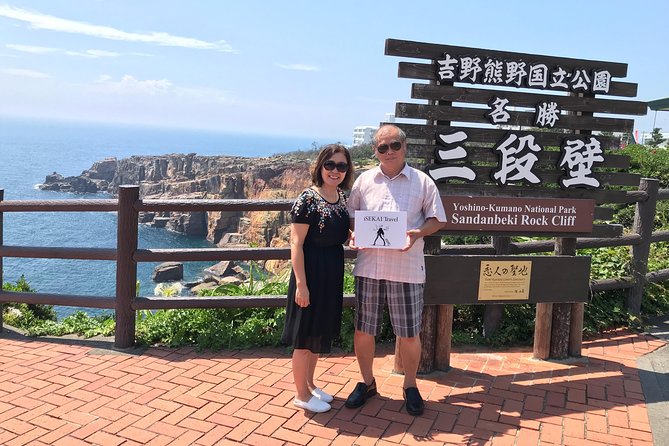Fukuoka: Traditional Origami Made With Japanese Paper invites participants to enjoy the rich tradition of origami in Japan.
Like delicate petals unfurling into beautiful blossoms, this two-hour experience unfolds the art of intricate handcrafted origami using traditional Japanese paper, known as washi.
Led by a knowledgeable instructor fluent in both Japanese and English, you will explore the world of 3D art, crafting sculptural forms that bring beauty and cultural significance to life.
With a focus on personalization and creativity, you will have the opportunity to decorate their folded creations, resulting in unique and delightful pieces.
Limited to a small group of ten, this intimate and immersive workshop offers accessibility, flexibility, and the chance to discover the artistry of origami in a truly engaging way.
Quick Takeaways
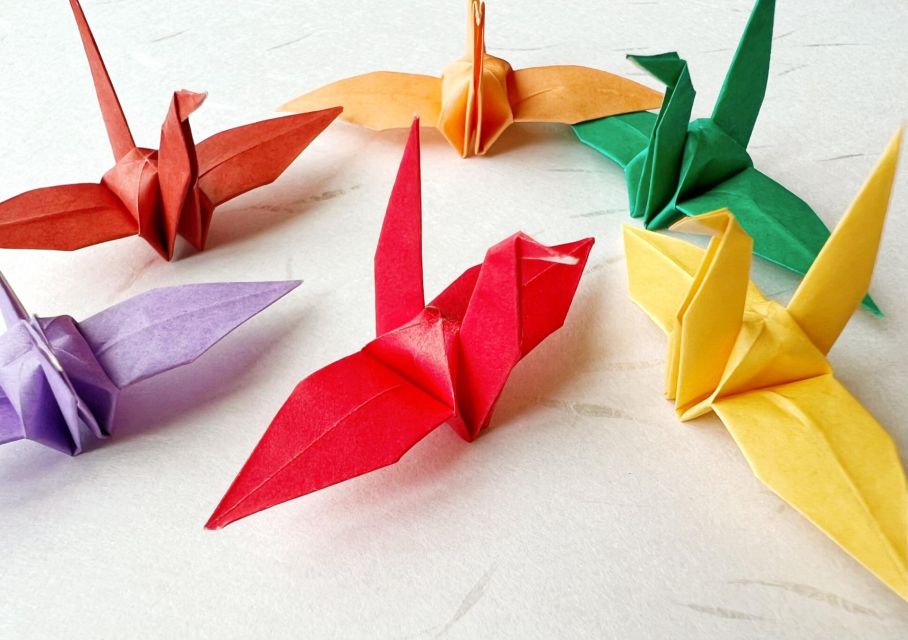
- Free cancellation available
- Duration of the activity is 2 hours
- Traditional Japanese paper, known as washi, is used for creating origami pieces
- Minimum of four participants required for the activity to proceed
Not for you? Here's a few more great tours and experiences nearby.
Origins of Origami in Japan
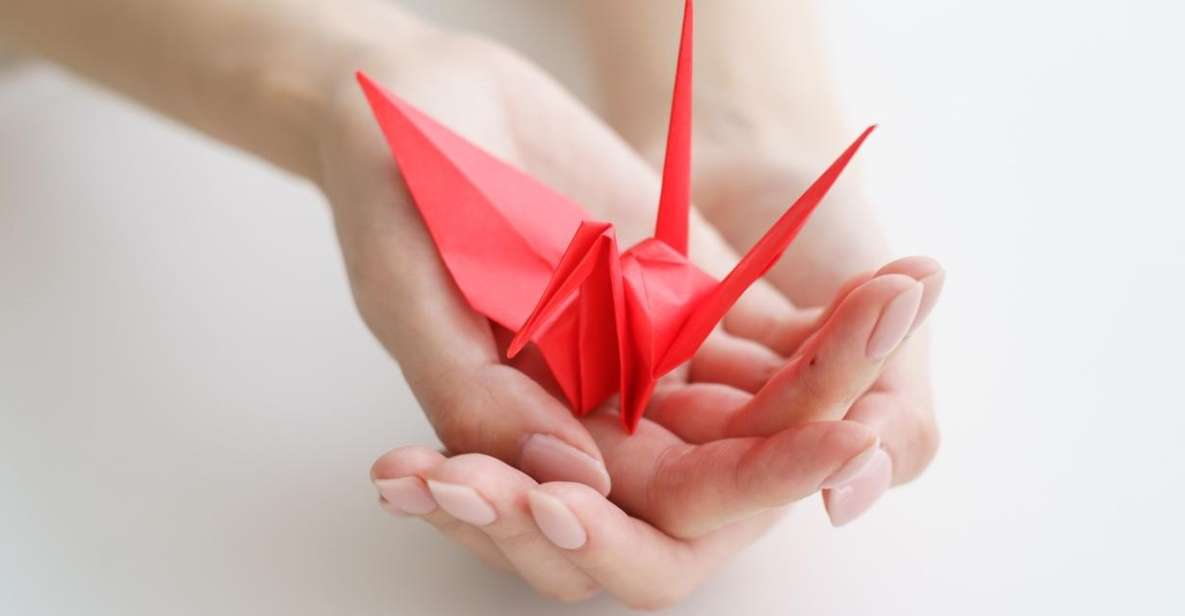
Origami, a traditional Japanese art form, has its origins deeply rooted in the cultural heritage of Japan. The history of origami can be traced back centuries, with its roots in traditional paper art. The word ‘origami’ itself comes from the Japanese words ‘oru,’ meaning to fold, and ‘kami,’ meaning paper.
The art of origami involves folding paper into various shapes and forms, often creating intricate and beautiful designs. Origami has been passed down through generations as a cherished tradition in Japan, with different techniques and styles evolving over time. Traditional Japanese paper, known as washi, is commonly used in origami, adding a unique texture and quality to the folded creations.
Today, origami continues to be appreciated as a form of artistic expression and cultural heritage in Japan and around the world.
You can also read our reviews of more tours and experiences in fukuoka.
Traditional Japanese Paper: Washi
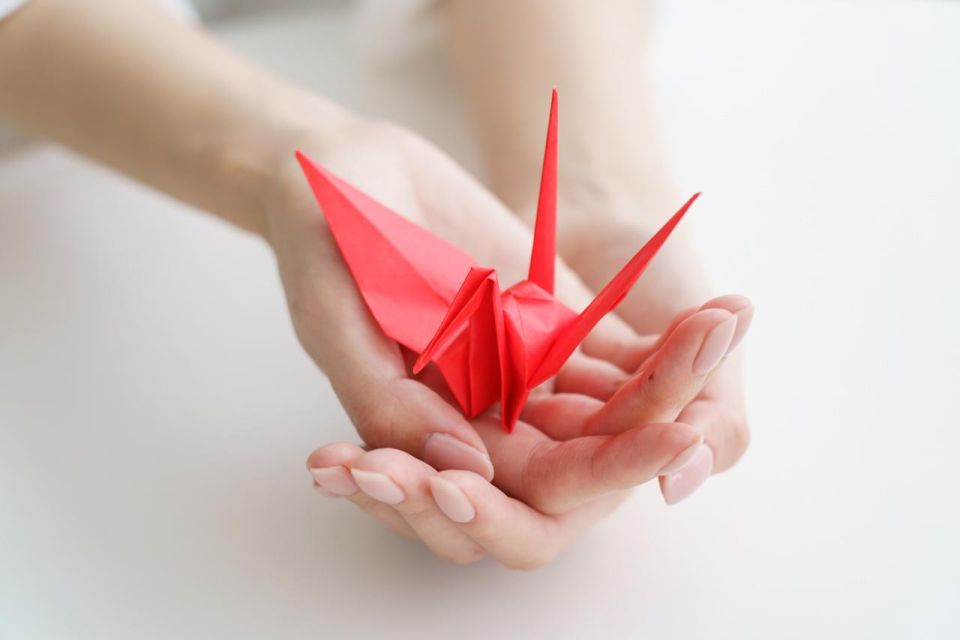
Traditional Japanese paper, known as washi, is a highly revered material that plays a vital role in the art of origami. Washi is handmade from the inner bark of the mulberry tree and is known for its strength and versatility. It is characterized by its soft texture and ability to hold intricate folds without tearing. Origami techniques often rely on the unique properties of washi paper to create delicate and detailed designs. Washi paper techniques include wet folding, where the paper is dampened to allow for more flexible and organic shapes, and tissue foiling, which involves adding a metallic finish to the paper for added visual impact. These techniques, combined with the beauty and tradition of washi paper, make it an essential element in the art of origami.
| Origami Techniques | Washi Paper Techniques |
|---|---|
| Wet Folding | Tissue Foiling |
| Modular Origami | Crumpling |
| Kirigami | Stenciling |
Intricate Techniques and Designs
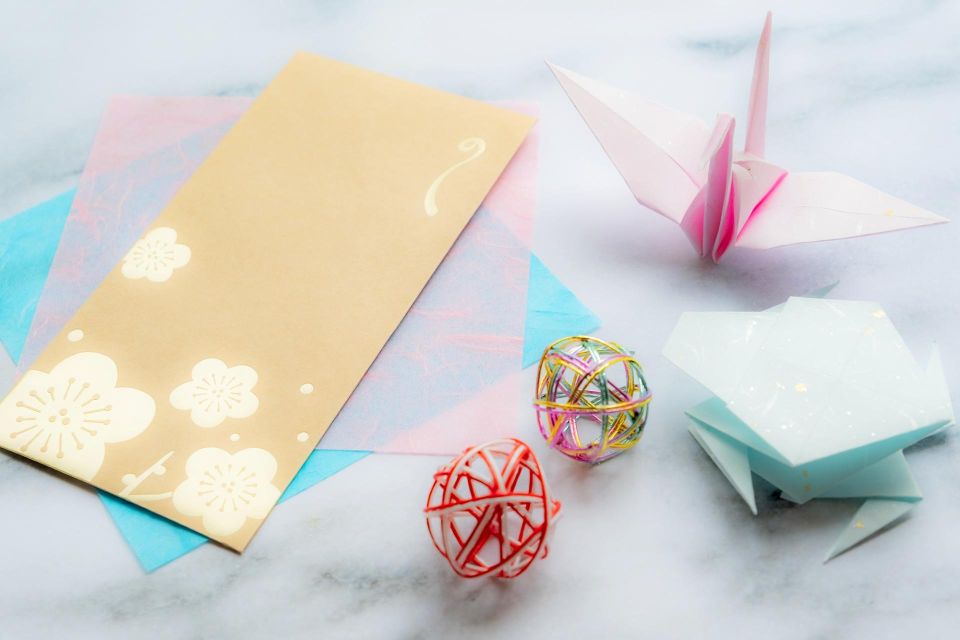
Artisans in Fukuoka master intricate techniques and designs to create stunning origami pieces using traditional Japanese paper. Through origami workshops, these skilled craftsmen and women share their expertise, teaching participants the art of folding intricate origami designs.
The attention to detail and precision required in these techniques result in exquisite folded creations that can be used as cultural interior decor. The use of traditional Japanese paper, known as washi, adds an authentic touch to the origami pieces. The delicate nature of the paper allows for the expression of soft curves and the ability to bring sculptural pieces to life.
Cultural Significance of Origami in Fukuoka
The cultural significance of origami in Fukuoka is deeply rooted in the traditions and heritage of Japan. Origami holds a special place in Japanese culture, representing patience, precision, and creativity.
In Fukuoka, origami isn’t only seen as a traditional craft, but also as a therapeutic activity that promotes relaxation and focus. Many people in Fukuoka engage in origami as a way to relieve stress and find inner peace.
Moreover, origami has also found its way into modern art, where it’s used as a medium for creating unique and innovative sculptures and installations. Artists in Fukuoka are exploring new possibilities with origami, pushing the boundaries of this ancient art form and creating stunning works that blend tradition with contemporary aesthetics.
Creating 3D Art With Washi Origami
In Fukuoka, the art of origami continues to evolve, as enthusiasts explore the possibilities of creating 3D art with washi paper. This traditional Japanese paper, known for its strength and beauty, lends itself perfectly to the art of origami, allowing artists to express soft curves and bring sculptural pieces to life.
Through the use of origami techniques, intricate handcrafted pieces are created, showcasing the cultural heritage of Japan. The art form not only allows for creativity and self-expression but also serves as a way to preserve and pass down traditional techniques and knowledge.
- Port Pick-Up: Hakata Private Tour Licensed Guide& Vehicle
- Fukuoka Airport To/From Fukuoka City: Shared Transfer
- Fukuoka: Private Walking Tour With Local Guide
- Fukuoka: Full-Day Hakata Walking Tour
- Fukuoka Airport (Fuk):Private Transfer To/From Nagasaki City
- From Osaka: One-Way Bullet Train Ticket to Hakata
Personalizing Your Origami Creations
Personalizing origami creations involves adding unique touches to make them one’s own. By incorporating various origami techniques, you can express their creativity and add a personal touch to their folded creations.
This not only makes the origami pieces more meaningful but also showcases the individual’s artistic flair.
On top of that, personalization allows individuals to connect with the cultural heritage of origami, as they can draw inspiration from traditional Japanese designs and motifs.
By infusing their own style and ideas into the origami folds, you can create pieces that reflect their personality and preferences.
This process of personalization not only enhances the aesthetic appeal of the origami creations but also adds a sense of pride and ownership to the final result, making it truly unique and special.
Booking and Availability for Origami Workshops
To reserve a spot in the origami workshops, you can easily check availability and book their preferred time slots. The origami workshop schedule is flexible, allowing participants to choose a time that suits their schedule. The pricing for the origami workshop is Kč1,163 per person, which includes all materials needed for the activity.
- The workshop schedule offers various starting times throughout the day, ensuring that participants can find a time that works best for them.
- Booking is made simple, with the option to reserve a spot without immediate payment. This allows individuals to secure their spot in advance and pay later.
- The availability of the workshops is limited to a small group of 10 participants, ensuring a personalized and intimate experience for each attendee.
Frequently Asked Questions
Are Children Allowed to Participate in the Origami Workshops in Fukuoka?
Children are allowed to participate in the origami workshops in Fukuoka. Engaging in origami offers numerous benefits for children, such as enhancing their creativity, improving fine motor skills, and fostering patience and concentration.
Can I Bring My Own Origami Paper for the Workshop?
Yes, participants are allowed to bring their own origami paper for the workshop. However, it is important to note that there may be age restrictions for certain workshops, so it is best to check beforehand.
Is It Necessary to Have Previous Experience in Origami to Participate in the Workshops?
Previous experience in origami is not necessary to participate in the workshops. The instructors are skilled in teaching beginners, allowing for a creative escape and the opportunity to add personal touches to your folds.
How Long Does It Take to Learn the Basic Origami Techniques?
The learning curve for basic origami techniques varies depending on the individual. However, with regular practice and guidance, one can expect to grasp the fundamentals within a few hours or days of dedicated time commitment.
Can I Take Home the Origami Creations I Make During the Workshop?
Yes, participants can take home their origami creations as souvenirs after the workshop. It’s a delightful way to showcase their creativity and cherish the experience of engaging in the traditional art of origami.
The Sum Up
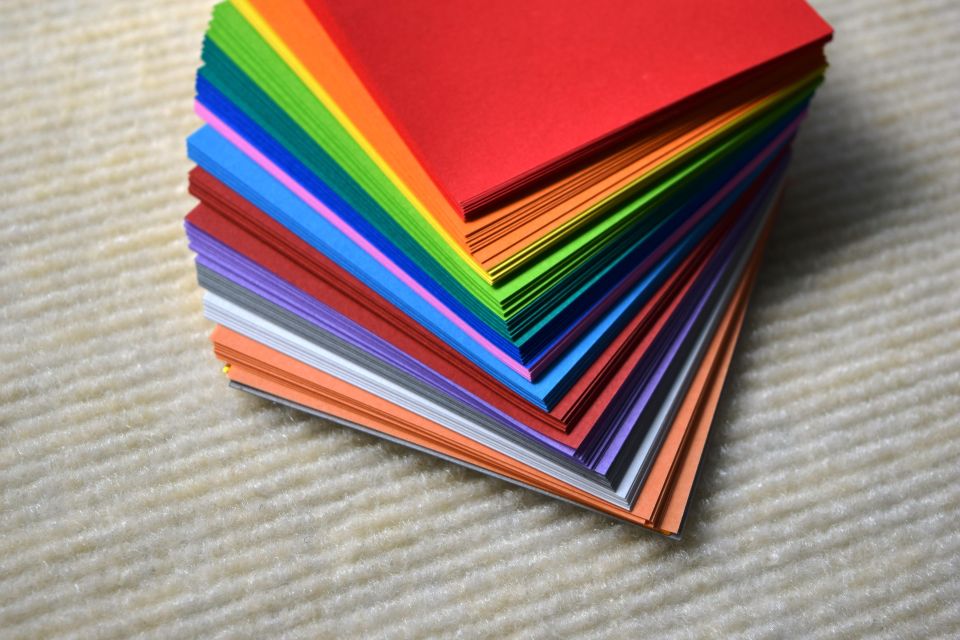
To sum it up, Fukuoka: Traditional Origami Made With Japanese Paper offers a captivating and immersive experience for those interested in delving into the art of origami. With a knowledgeable instructor, participants can learn intricate techniques and designs using traditional Japanese paper.
The opportunity to personalize their creations adds a unique touch, resulting in delightful and one-of-a-kind pieces.
With easy booking and flexible tour planning, this activity ensures convenience and accessibility for all. Don’t miss out on the chance to explore the cultural significance of origami in Fukuoka!
More Tour Reviews in fukuoka
- Private Transfer From Fukuoka Airport (Fuk) to Sasebo Cruise Port
- Private Transfer From Fukuoka Airport (Fuk) to Sasebo Cruise Port
- Private Transfer From Fukuoka Airport (Fuk) to Shimonoseki Port
- Private Transfer From Fukuoka Hotels to Shimonoseki Cruise Port
- Private Tour to Kokura Castle, Uomachi Street, and Yasaka Shrine
- Private Transfer From Fukuoka City Hotels to Miyazaki Cruise Port
Not for you? Here's more nearby things to do in fukuoka we have reviewed
- Private Transfer From Kitakyushu Cruise Port to Fukuoka Hotels
- Private Transfer From Fukuoka Airport (Fuk) to Sasebo Cruise Port
- Private Transfer From Fukuoka Airport (Fuk) to Sasebo Cruise Port
- Private Transfer From Kumamoto Cruise Port to FUKuoka Airport FUK
- Private Transfer From Fukuoka Airport (Fuk) to Shimonoseki Port
- Private Transfer From Fukuoka Hotels to Shimonoseki Cruise Port
- Private Tour to Kokura Castle, Uomachi Street, and Yasaka Shrine
- Private Transfer From Fukuoka City Hotels to Miyazaki Cruise Port
- Private Transfer From Kitakyushu Port to Fukuoka Airport (Fuk)
- Private Transfer From Miyazaki Cruise Port to Fukuoka City Hotels
- Private Transfer From Kumamoto Cruise Port to Fukuoka Hotels
- Short Day Trip Chater Bus to Strawberry Picking & Shop in Fukuoka

